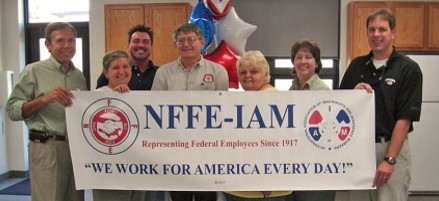
This year marks the 50th anniversary of the Civilian Conservation Corps’ (CCC) Job Corps program, a program created during the administration of President Lyndon B. Johnson in 1964 as part of Johnson’s War on Poverty and Great Society initiatives. The CCC Job Corps program, which remains enormously successful five decades after its inception, has trained more than two million at-risk youth since the first Center opened its doors in 1965.
The Job Corps was created to expand economic and social opportunities for Americans, particularly minorities and the poor. The Job Corps program was modeled on the Depression-era Civilian Conservation Corps of the 1930s, which provided room, board and employment to thousands of unemployed people.
The average enrollee enters as a high-school dropout, reading below a 6th-grade level and substandard math skills. Often, enrollees come from economically-challenged homes. These students often have learning disabilities, behavior problems and other special needs. Without Job Corps, such individuals face a bleak future and may place an expensive burden on society. With Job Corps, many complete the program with a high school diploma or equivalency, and over 80 percent secure gainful employment or enter the military.
In the program’s current state, the CCC Centers are solely operated by the U.S. Forest Service. However, there has recently been growing questions as to why a land-management agency is involved in the sole operation of a program aimed at workforce development. And with minimal public notice, Congress passed a provision in the Workforce Innovation and Opportunity Act of 2015 (WIOA) last July that enabled the Department of Labor (DoL) the sole authority of expediting of CCC operations to be shuttered and ultimately contracted out – a maneuver that NFFE strongly opposes in both substance and style.
Since WIOA’s passage, the Department of Labor has opened up the comment period on the proposed rule that would implement the expedited privatization of the CCC operations. This provision would result in potentially losing 1,100 Forest Service jobs, many of whom are proud NFFE-IAM members, and a loss of $155 million to the 27 centers across the country, a majority of which are located in economically-depressed rural communities.
Cutting the investments into CCCs would deliver a crippling blow to some of the most economically-vulnerable regions of the country. An investment in CCCs is an investment in rural communities across America. CCCs provide critical career training to desperately underserved populations that bolsters local workforces, develops civic engagement and equips program graduates with the necessary skills to thrive in the 21st century economy.
The Department of Labor’s proposed rule to provide unilateral authority to the Secretary of Labor to close centers leaves important stakeholders, including elected officials, out of the conversation, lacks transparency, and ultimately removes any level of accountability to American taxpayers for decisions made.

Locals 1840, 1697 and 1855 represent NFFE-IAM members at CCC centers across the country
